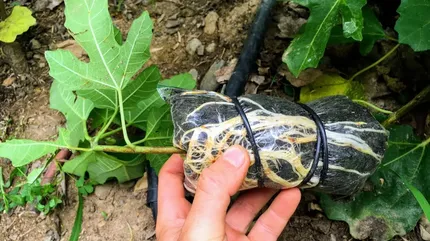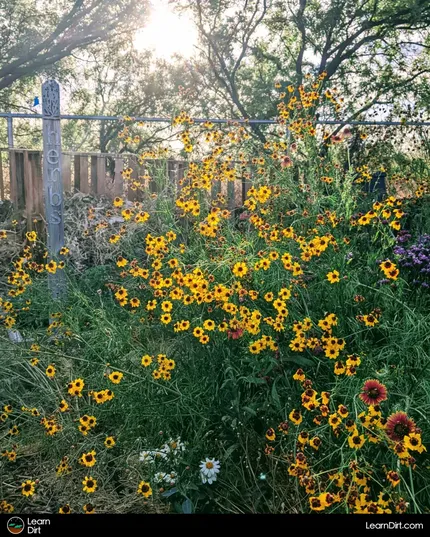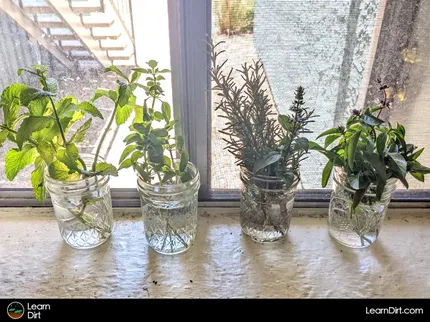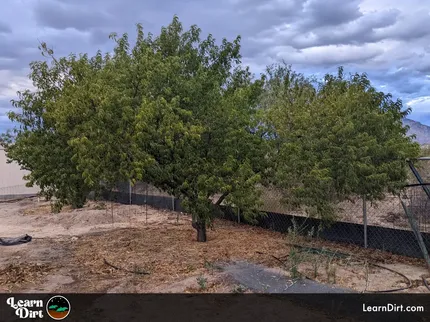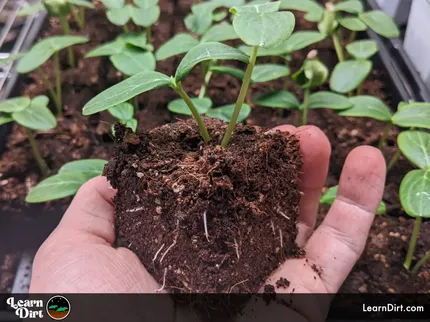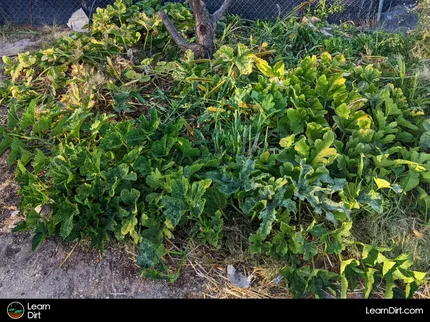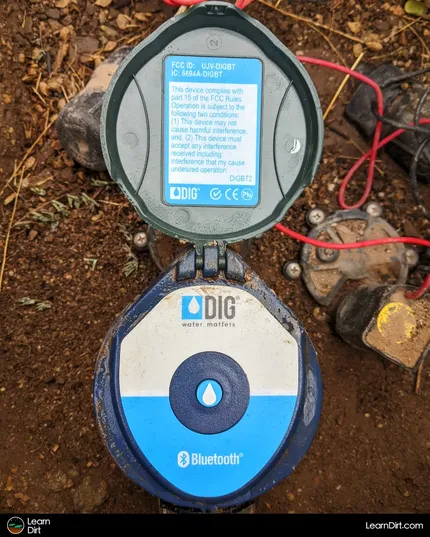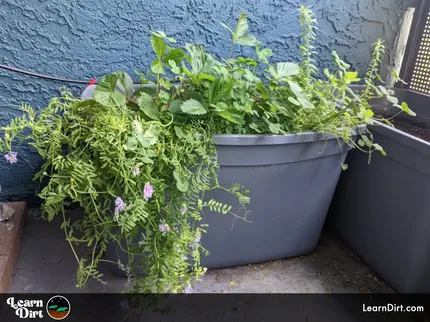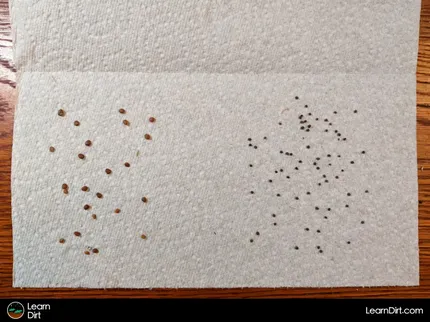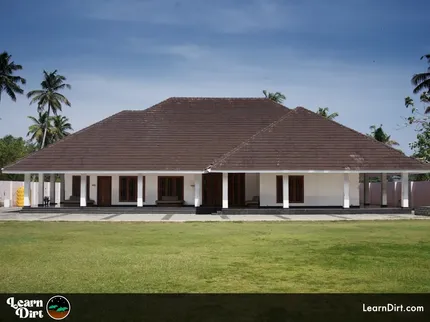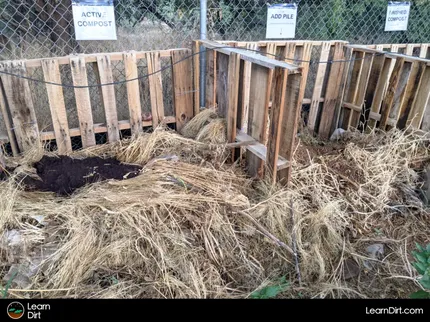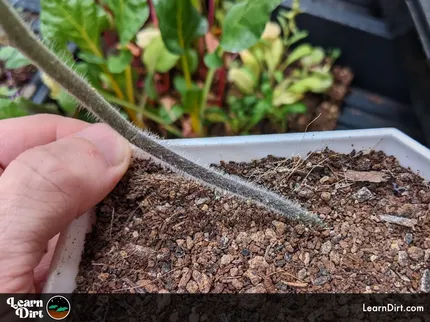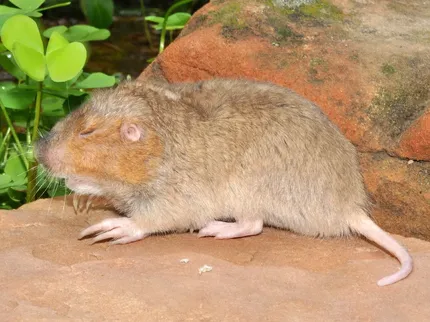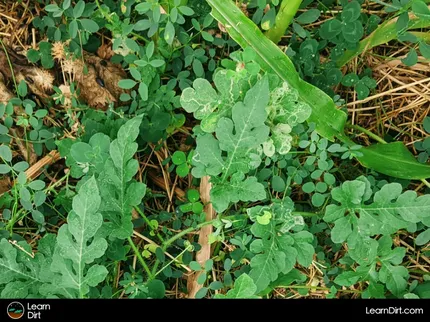Table of Contents
* Our articles never contain AI-generated slop *
If you're growing from seed, It's pretty common to see your seedlings tipping or leaning over - especially when they're young.
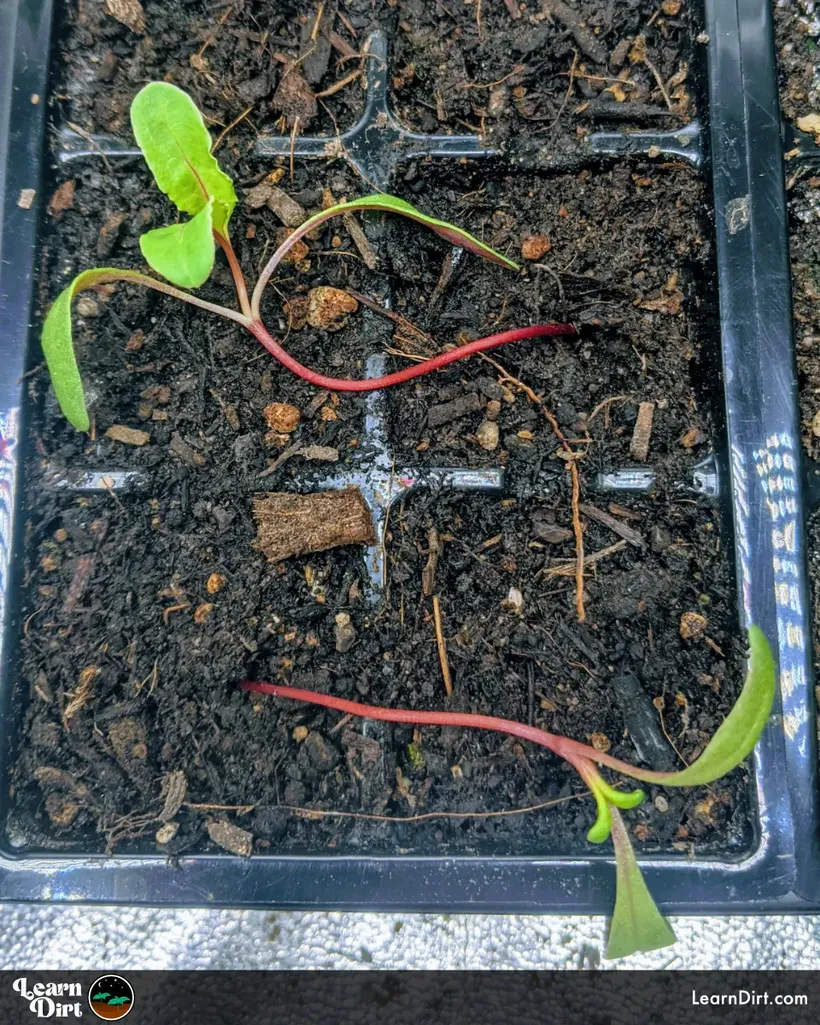
If this is happening to you, don't panic! We're going to look at a few of the most common reasons why seedlings fall over and what you can do about it.
What Are Leggy Seedlings?
"Legginess" or "leggy seedlings" are seedlings which have stretched too far, most commonly due to lack of light, resulting in taller-than-usual seedlings.
Disclaimer: This post may contain affiliate links. Refer to the privacy policy for more information.
This often results in a lean, or eventual tipping over of seedlings - as in the case here.
Legginess can also cause spindly plants with increased internodal spacing (the distance between each side-shoot along the main stem).
How to Fix Leggy Seedlings
When seedlings streeeetch too tall, too fast, there's no putting the genie back in the bottle. The plants will remain stretched.
You can, however, prevent further stretching and get the seedling more focused on root and shoot development and less on stretching to the moon.
First we need to understand what exactly causes plants to stretch in the first place, so we can prevent it from happening again.
Why Are My Seedlings Leggy?
Most seedlings that tip over do so because of leggyness. Leggy seedlings are those that stretch too tall, too fast, and lose their ability to stabilize themselves because of that stretch.
Join The Grower's Community
A FREE, friendly forum
where you can ask questions,
swap tips, and meet like-minded growers 🌱
Check It Out!
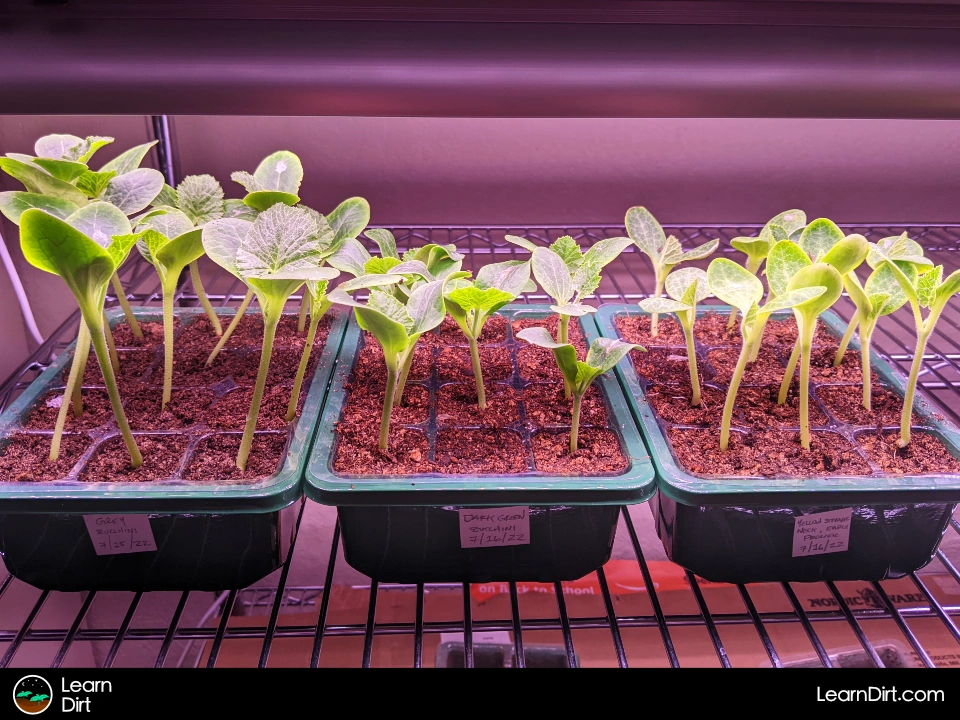
A few things cause this, so you'll need to diagnose what the issue is in order to correct it.
Check out each of the possible causes listed below, and consider which one might be affecting your seedlings:
Not Enough Light
Supplemental lighting be a huge help in preventing leggy seedlings, and indirect windowlight may not be enough to prevent a leggy stretch & lean.
Consider a strong supplemental grow light if you're starting your seedlings indoors as a way to ensure they get enough light for a great start.
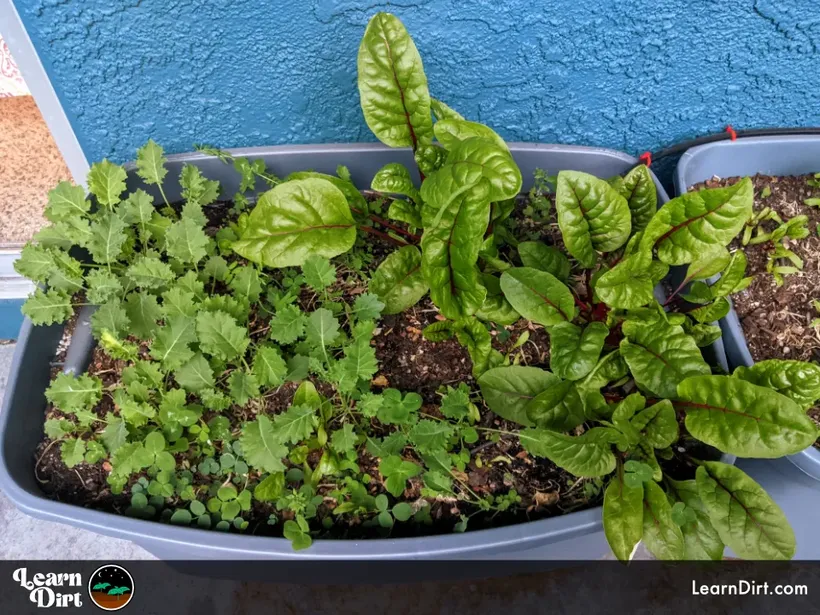
Early season transplants outdoors can also suffer from the lack of light.
Consider waiting a bit longer in the season, until it's warmer and the sun is more intense.
Shallow Seeds
If your seedlings are lanky and tip over after sprouting, consider planting your seeds more deeply to help prevent this.
If your seedlings will tolerate a deeper planting, this can provide more soil to support the stem and stabilize the plant as it grows.
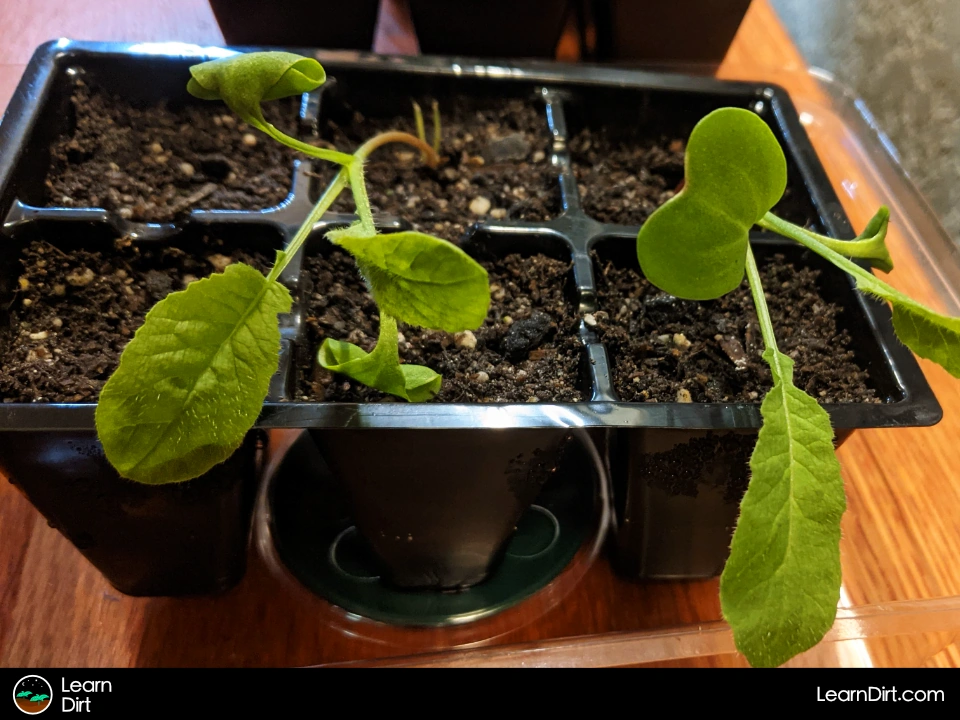
Just be careful not to plant TOO deeply, though, as you risk seedlings never sprouting at all.
Each seed type has a sweet spot for planting depth, and ideally you'll take the time to research each one (or verify on your seed packet). In practice, though, sometimes you're planting without the seed packet, without internet, or without a dibbler with measurements to get an exact depth.
In this case you can fall back to the general rule of thumb that a seed can be planted roughly 2 to 3 times deeper than its diameter.This tells you right away that larger seeds will tolerate deeper plantings, while small seeds should be sown at shallow depth.
If you're working with larger seeds and they're tipping over after sprouting, consider whether they'll tolerate being planted deeper for a better anchoring in the soil.
Loose Soil
If your seed-starting soil mix is loose, dry, or crumbly it may not provide enough support for seedlings to firmly anchor into.
Consider the texture of your seed-starting mix, and adding more compost to help bind it together.
If you're using garden soil for seed-starting, consider buying or making a proper seed-starting mix for improved seedling performance.
How to Prevent Leggy Seedlings
If your seedlings have a tendency to tip over - don't worry!
You just need to make a few adjustments to your seed-starting environment for them to thrive:
- Give them more light
- Plant them deeper
- Use denser soil if it's very loose
If plants do end up tipping over, though, they should still be able to thrive in most cases - so don't worry too much. Just work to correct it for next time.
That's all for now, thanks for reading!
If you have any questions, comments, or would like to connect with fellow gardeners, head on over to the forum and post there.

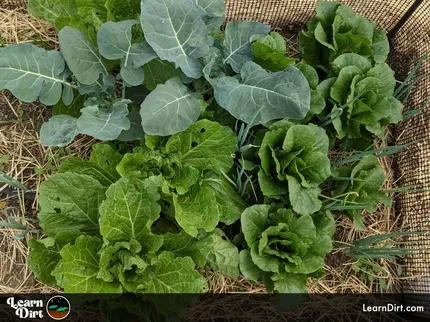
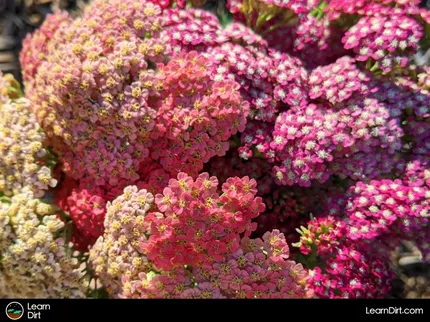
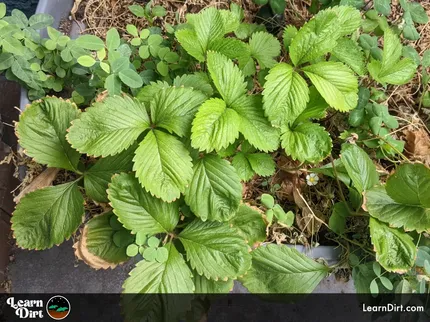
![Don't Till Away Your Carbon [Neon]](/media/product_images/dont-till-away-your-carbon-[neon]_sticker_260x260.png)



